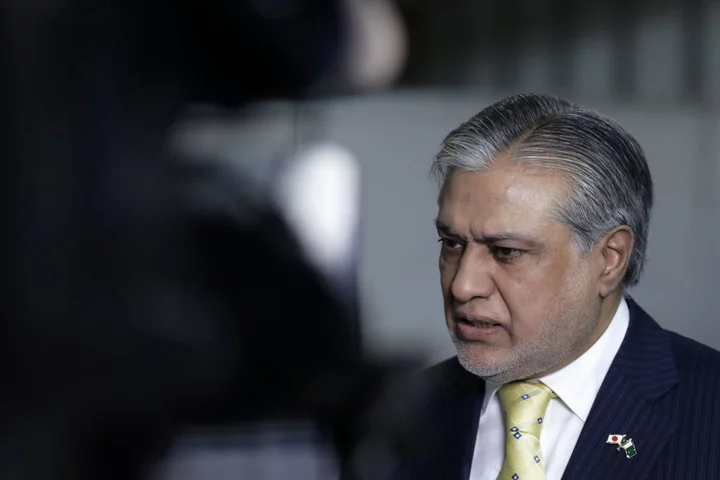Pakistan will go to bilateral creditors to try to change some terms of its repayment structure as it’s unsure about completing an International Monetary Fund bailout program set to end later this month and tries to stave off a default.
Prime Minister Shehbaz Sharif’s administration plans to engage in talks on its bilateral debt after the country’s parliament approves the budget for the new fiscal year, which begins on July 1, Finance Minister Ishaq Dar said at a news conference in Islamabad on Saturday. The government presented the budget on Friday that aims to balance boosting economic growth with austere conditions imposed by the IMF to revive the bailout program.
“We won’t be seeking write offs or favor, nor bothering multilateral agencies including the Paris Club, IMF and the World Bank,” he said. “We will make their payments when those become due.”
The minister said his plan is to seek to service interest payments and push back principal payments to free up cash flow. He won’t ask creditors to take major reductions on principal, he said earlier in an interview with Geo Television channel.
The South Asian nation has been trying to salvage a loan program with the IMF to avert a default. It faces about $22 billion of external debt payments for fiscal year 2024, according to Columbia Threadneedle Investments, which is about five times its reserves.
Read more: Pakistan Narrows Funding Gap, Hopes for IMF Loan This Week
Dar said the country is hopeful of securing only one tranche of $1.1 billion from the IMF after completion of its ninth review. “I don’t think there is any chance of any review beyond this,” he said, adding that a new government after elections scheduled later this year will have to make further decisions. The current IMF loan program is set to end by June 30.
Pakistan has been downgraded by Moody’s and Fitch this year. Its dollar bonds have returned 6.2% this year, beating the average return of 3.2% across developing nations, according to a Bloomberg index.
The government may delay seeking restructuring of debt until elections if it gets some aid from friendly states, according to Fahad Rauf, head of Research at Ismail Iqbal Securities.
“This is the option, not a choice if the country doesn’t have funds to pay its debts. It has been due for sometime,” he said.
--With assistance from Ismail Dilawar.
(Updates with IMF program expectation and analyst comment)

